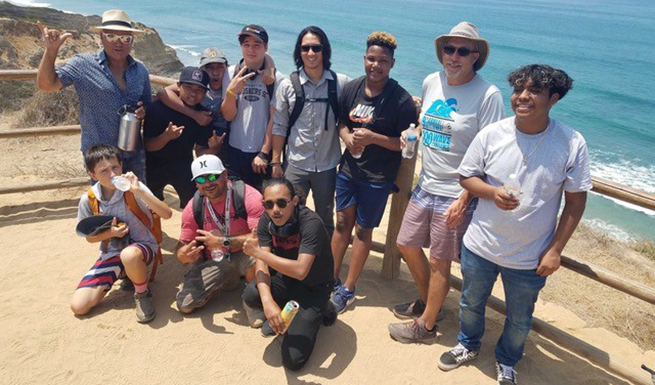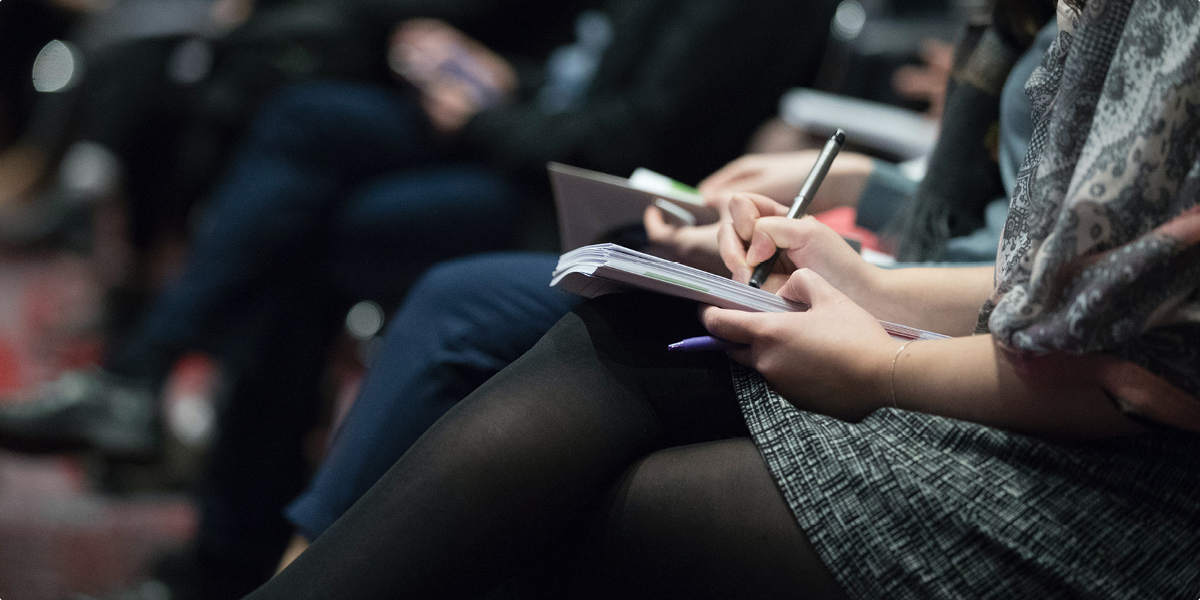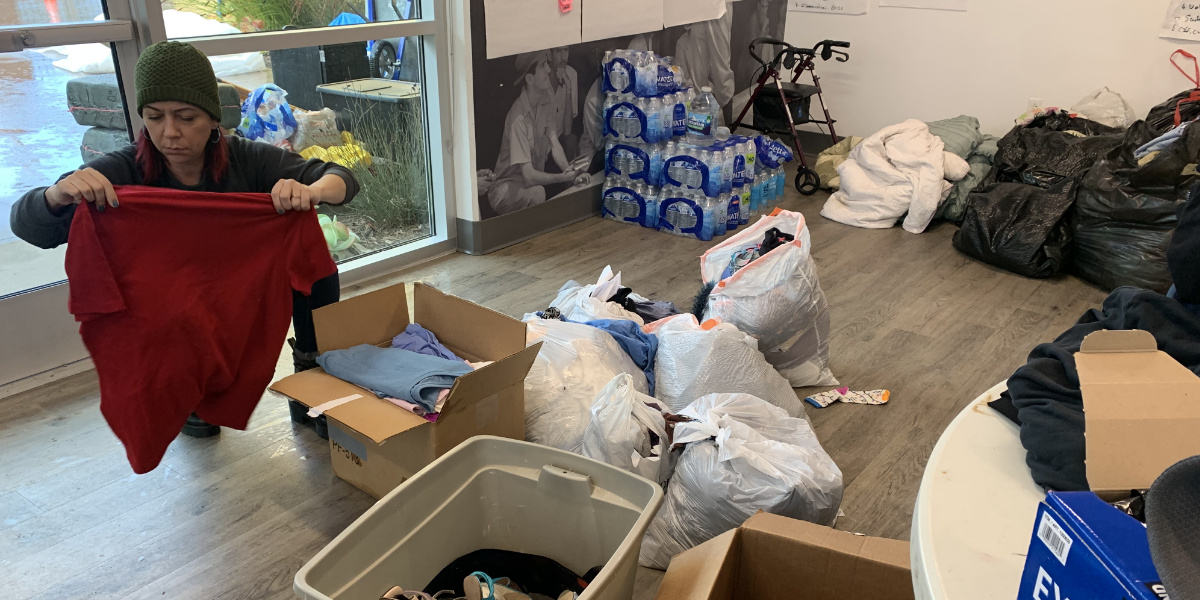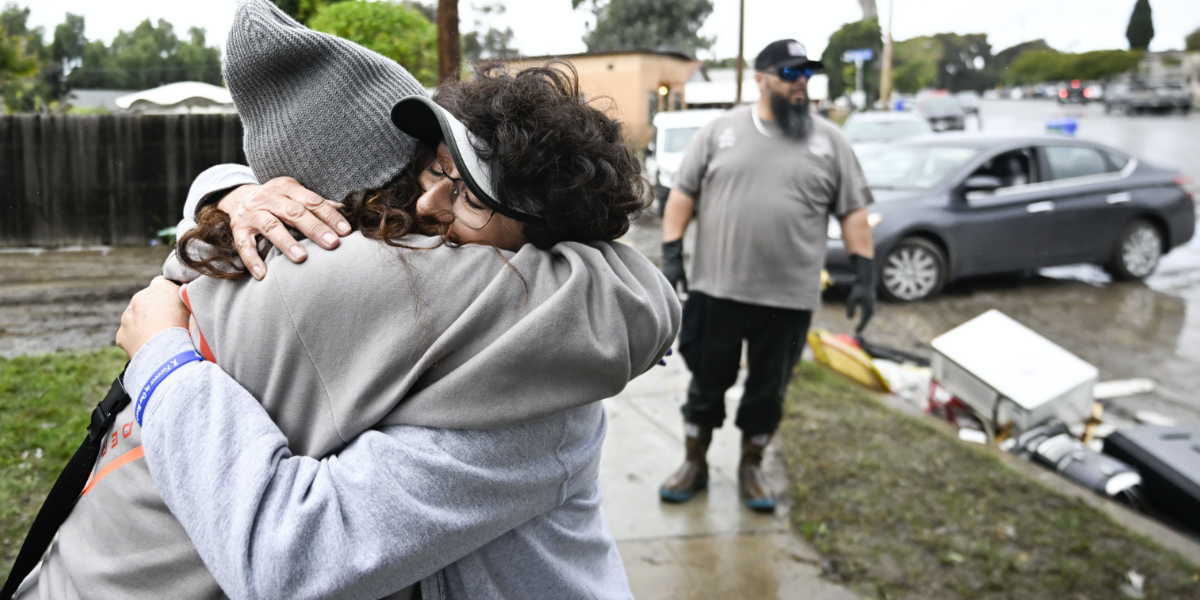Consistency is key for the teen boys that participate in Boys to Men Mentoring programs.
The local San Diego nonprofit helps them overcome delinquent behavior, obstacles in education, and disconnection from family and friends through mentoring program circles.
These circles are vital, creating a safe space for the teens – 52% of whom are growing up in a home without a father – to express their fears, challenges, and frustrations to male mentors and peers that can relate.
So when the call was made to pause all programs at the onset of the pandemic, mentors, school facilitators, the teens and their families felt the impact.
“There was a lot of fear, but we had to do what was safe and what was best for the boys we serve, which is our bottom line at the end of the day,” shared Development Manager Tabetha Constancio.
With support from the COVID-19 Community Response Fund, Boys to Men was able to shift to a virtual model and continue providing a space of healing, growth and connection for teen boys in San Diego.
Boys Need Mentors
Boys to Men partners with local schools to deliver their mentoring circle programs on-site. The nonprofit also hosts weekly community circles in the parking lot of their office for teens that don’t have Boys to Men in their schools.
The relationship the teens have with their mentors is an authentic and important one. Mentors are open about their lived experiences, from gang involvement to spending time in jail.
“For a lot of these boys, it’s the first time they’ve ever heard a man being open and honest about their feelings and experiences,” Tabetha added. This candidness creates a climate for vulnerability among the teens.
When programming was forced to a halt, not only were students pulled out of the stability and routine of school, but for a few weeks after, they had no way to participate in the supportive circles that had helped them manage their already high levels of anger and stress.
“The isolation alone really, really impacted our boys,” Tabetha shared, emphasizing that ‘home’ for many of them was not a healthy, positive or productive environment. As the pandemic ramped up, Boys to Men saw a dramatic increase in young men expressing their trauma and anxiety.
“Boys need mentors, and it’s apparent now more than ever,” she emphasized.
Connection and Expansion
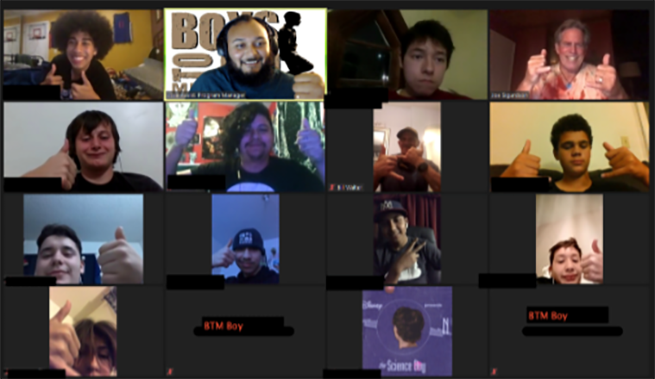
“It was hard to get them to log into Zoom for class. But we found that a lot of the boys were logging in to our Boys to Men groups,” Tabetha shared.
When Boys to Men was able to transition fully to a virtual mentoring circle program, the organization got creative to address the teens’ mental health needs and make the online experience as engaging as possible.
Virtual game nights, a virtual talent show, and a drive-in movie night with the teens and their families, plus summer outdoor activities like hiking, surfing and rock-climbing, all helped curb the lack of connection the boys had experienced during the pandemic.
Boys to Men has begun the slow and challenging work to return to an in-person model in alignment with schools reopening this year. Tabetha cited that the in-person aspect of the program is “incredibly transformational” and they plan to expand services to even more schools.
She also acknowledged the hundreds of teens that they were able to connect with through their virtual model, and plans to maintain that accessibility in some capacity.
“Spring After Cold Winter”
The impact of the virtual programming was palpable, Tabetha emphasized. One student, Jaiden, wrote an original song for the virtual talent show that laid bare his struggles with thoughts of suicide.
The song, “Spring After Cold Winter,” was subsequently selected as the theme song for SAY San Diego’s 2021 Light Our Way campaign.
The talent show gave the teen boys an opportunity to tap into their power, be vulnerable and surprise themselves with what they were capable of.
“We don’t really know if there’s a true ‘back to normal’ for Boys to Men,” Tabetha reflected. Their main focus, she says, is to support and empower their teens no matter what the situation entails.
“Our ‘new normal’ is being fluid and flexible with the climate, with what the boys are going through, and to meet them where they are.”
